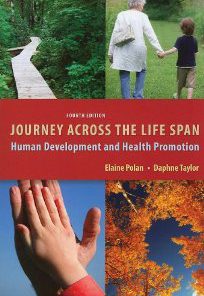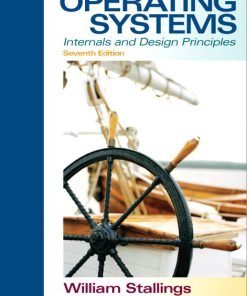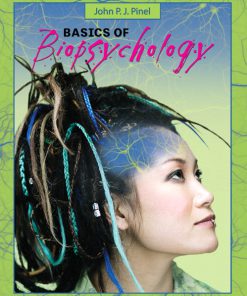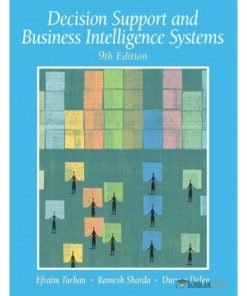Test Bank for Living Ethics, 2nd Edition
$35.00 Original price was: $35.00.$26.50Current price is: $26.50.
Test Bank for Living Ethics, 2nd Edition
CHAPTER 1: LEARNING
PLATO
Multiple Choice and True/False Questions
- True or False*
Education is putting knowledge into those who lack it.
- True or False*
According to Plato, the virtue of reason is always beneficial.
- What does Plato say would be the probable first reaction of someone freed from the cave and shown the light?
- Joy
- Pain and confusion*
- Understanding
- Knowledge
- In the allegory of the cave the __________ represents the visible world.
- The forms
- The form of the good
- The prison dwelling*
- The sun
- Which of the following does Plato say is the cause of all that is correct and beautiful?
- The forms
- The form of the good*
- The philosopher
- The sun
Essay Question
Discuss the allegory of the cave. Be sure to explain each of the symbols in the allegory.
There is a dark cave in which many people sit, chained, unable to get up or even move their heads (these represent the uneducated). The only thing they can see it the shadows of little artifacts projected on the cave wall. They can hear the sounds of the people carrying those artifacts as well (this represents their understanding of the world around them). One person escapes, and upon leaving the cave is blinded by the light of the world, and wishes to return to the cave (this represents the surprise and confusion at learning about the way the world really is, about the Forms, and the wish to accept what one already understands, the ‘knowledge’ one is comfortable with). But she becomes accustomed to it, and gradually is able to see all the beautiful things above ground (this represents her understanding and acceptance of the truth that she has learned upon being educated). Upon returning to the cave, she is unable to see in the darkness, and is ridiculed by the former companions there for her inability to recognize the shadows on the wall (this represents that it is often difficult to understand the folk beliefs or awkward representations of truth of those without the privilege of education when one already understands truth). When she attempts to explain the way things really are to her friends, they simply think her eyesight has been ruined by the upper world, and that it is not worth going to (this represents what the uneducated might think of what truth has done to the educated, in other words, that they don’t actually understand the truth because it does not conform to the understanding of the uneducated). When she tries to lead one up, they attempt to kill her (this represents the suppression of the truth that often occurs when the learned attempt to teach what they know).
Discussion Questions
- This passage is an allegory because things within it are metaphors for other things. What interpretation(s) can you give to the allegory of the cave? How would you justify your interpretation(s)?
See answer to above essay.
- The person who leaves the cave has a transformation that changes that person’s relationships with other people. What other examples can you think of where an educational experience changes a person’s relationships with others?
Examples of transformations people undergo when educated which would change a relationship are, say being convinced of the truth of atheism over previous adherence to theism, or the truth of theism over previous atheism. One may discover an intense love of mathematics due to education, and prefer it’s subject matter of that of say, chemistry, which it a friend’s preferred subject, and this change the dynamic of the relationship.
- Do you think it is possible to achieve the ideal kind of knowledge that Plato describes? Why or why not?
It is certainly possible to attain the type of knowledge which, when first heard is completely antithetical to all that one has known, and yet come to accept it. Various discoveries in physics have been like this, where everyone except the discoverer are disbelievers and simply feel that the discoverer is warped or misguided–the wave-particle duality, the Copernican conception of the universe. This seems to be very much like the knowledge Plato is idealizing. On the other hand, Plato is also talking about knowledge of the Forms, knowledge that comes by abstracting away from the senses and recollecting Ideas that are not of this world.
KRISHNAMURTI
Multiple Choice and True/False Questions
- True* or False
Krishnamurti says that life is complex and broad, but we usually only learn about one small corner of it.
- True* or False
Krishnamurti equates intelligence with the capacity to think freely, without fear.
- One purpose of education for Krishnamurti is to __________.
- Become a productive, tax-paying citizen
- Eliminate fear*
- Maintain power
- Attain wealth
- According to Krishnamurti, we must create an atmosphere of __________.
- Open-mindedness
- Political liberalism
- Freedom*
- Segregation
- Krishnamurti thinks that we should __________.
- Accept and maintain the status quo
- Search for our own answers to questions*
- Align ourselves with power
- Accept the inherent nihilism of humanity
Related products
Test Bank
Test Bank for Clinical Immunology and Serology A Laboratory Perspective, 3rd Edition: Stevens
Test Bank
Test Bank for Operating Systems: Internals and Design Principles, 7th Edition: William Stallings
Test Bank
Test Bank for Decision Support and Business Intelligence Systems, 9th Edition: Efraim Turban












